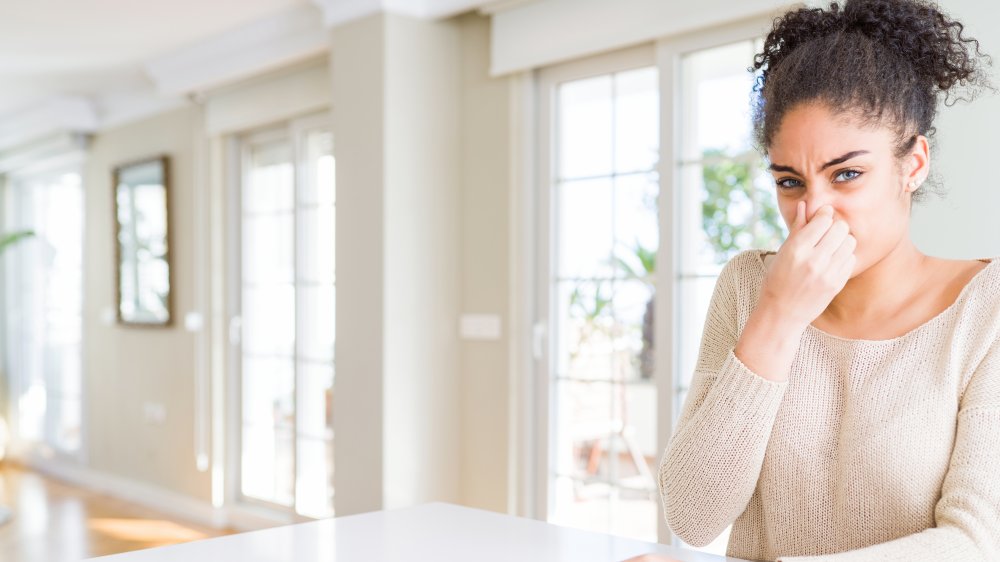Does Losing Your Sense Of Smell Really Mean You Have Coronavirus?
Reports of another potential coronavirus symptom are coming in that may help you determine whether you may have coronavirus and if you should get tested.
According to USA Today, the American Academy of Otolaryngology — Head and Neck Surgery and ENT UK both issued warnings that a loss or alteration in your sense of smell or taste could be a coronavirus symptom. Both warned that patients had tested positive for coronavirus after experiencing only this symptom and none of the other symptoms we have come to associate with COVID-19 such as fever and dry cough.
Claire Hopkins, president of the British Rhinological Society, and Nirmal Kumar, president of ENT UK, issued a joint statement saying that South Korea, China, and Italy have reported "significant numbers" of COVID-19 patients having a loss of smell, known as anosmia. "In Germany it is reported that more than 2 in 3 confirmed cases have anosmia," the wrote. "In South Korea, where testing has been more widespread, 30 percent of patients testing positive have had anosmia as their major presenting symptom in otherwise mild cases."
What should you do if you lose your sense of smell?
While COVID-19 typically starts with mild symptoms and then rapidly escalates (per Business Insider), Dr. James C. Denneny III, executive vice president and CEO of the American Academy of Otolaryngology — Head and Neck Surgery, said that some people experience losing their sense of taste or smell early in the illness, while others don't experience it until COVID-19 progresses further. "The symptoms are clearly not as common as cough, fever, and shortness of breath, but in the absence of a known cause for the smell disorder, this symptom may be an additional identifier for infected patients," he said.
While a loss of smell or taste doesn't necessarily mean you have coronavirus and could be due to allergies, flu, or a different viral infection, people experiencing a loss or alteration in their sense of smell or taste may want to get tested or, at the very least, self-isolate.
Even if someone with a loss of smell or taste doesn't experience other symptoms, there is still a danger of infecting other people with coronavirus, so it's especially important for them to wash their hands and practice social distancing.

